The Life And Legacy Of Prophet Muhammad ﷺ
The Life and Legacy of Prophet Muhammad ﷺ
Introduction
Muslims believe that Prophet Muḥammad ﷺ (ṣallallāhu ʿalayhi wa sallam), who was born in the holy city of Makkah around 570 CE, was the last Messenger of Allah ﷻ. Historians, on the other hand, see him as one of the most important leaders in history. Sent at a time of spiritual confusion and social injustice, he ﷺ called humanity back to the worship of one God and modelled a life of mercy, justice, and service. Within twenty-three years, he ﷺ united the tribes of Arabia, established a moral order grounded in revelation, and set principles that still inspire billions.
His ﷺ life is more than a sequence of events; it is a living example for those who seek Allah ﷻ. The Qur’ān states:
“Indeed, in the Messenger of Allah you have an excellent example for whoever hopes in Allah and the Last Day and remembers Allah often.”
(Al-Aḥzāb 33:21)
Studying his life helps us understand the Qur’ān, practise faith in our daily affairs, and embody the compassion and integrity he ﷺ taught.
Pre-Islamic Arabia: A World in Need of Change
Before Islam, much of Arabia lived under Jāhiliyyah—an age of ignorance marked by idolatry, vendettas, and social inequality. The Kaʿbah—built by Ibrāhīm (AS) and Ismāʿīl (AS) for Allah’s worship—had been surrounded by idols. Tribal power often replaced justice; the poor and orphans were neglected; slavery was common; women lacked rights, and some tribes buried infant daughters. The Qur’ān condemns this:
“And when the female infant buried alive is asked for what sin she was killed.”
(At-Takwīr 81:8–9)
Amid this darkness, Allah ﷻ sent Muḥammad ﷺ to restore tawḥīd (Oneness), reform society, and illuminate hearts.
Early Life: The Trustworthy al-Amīn
Orphaned young—his father before birth and his mother at six—he ﷺ was raised by his grandfather ʿAbd al-Muṭṭalib, then his uncle Abū Ṭālib. Allah ﷻ reminded him of this grace:
“Did He not find you an orphan and give you refuge?”
(Ad-Ḍuḥā 93:6)
He ﷺ worked as a shepherd (teaching patience) and later as a trader, earning a reputation for integrity so strong that Makkans called him al-Amīn (“the Trustworthy”). At twenty-five he married Khadījah (RA), a respected businesswoman who admired his character. Their marriage—full of love and loyalty—became the bedrock of his early mission.
The First Revelation at Ḥirāʾ
Seeking solitude and truth, he ﷺ would retreat to the Cave of Ḥirāʾ on Jabal al-Nūr. During Ramaḍān, Angel Jibrīl (AS) appeared with the first revelation:
“Read in the name of your Lord who created… Who, taught by the pen, taught man what he knew not.”
(Al-ʿAlaq 96:1–5)
After receiving the revelation, he ﷺ returned to Khadījah (RA), who comforted him and then took him to Waraqah ibn Nawfal, a learnt Christian who confirmed that the message was indeed the calling of prophethood. Thus began a 23-year mission that transformed history.
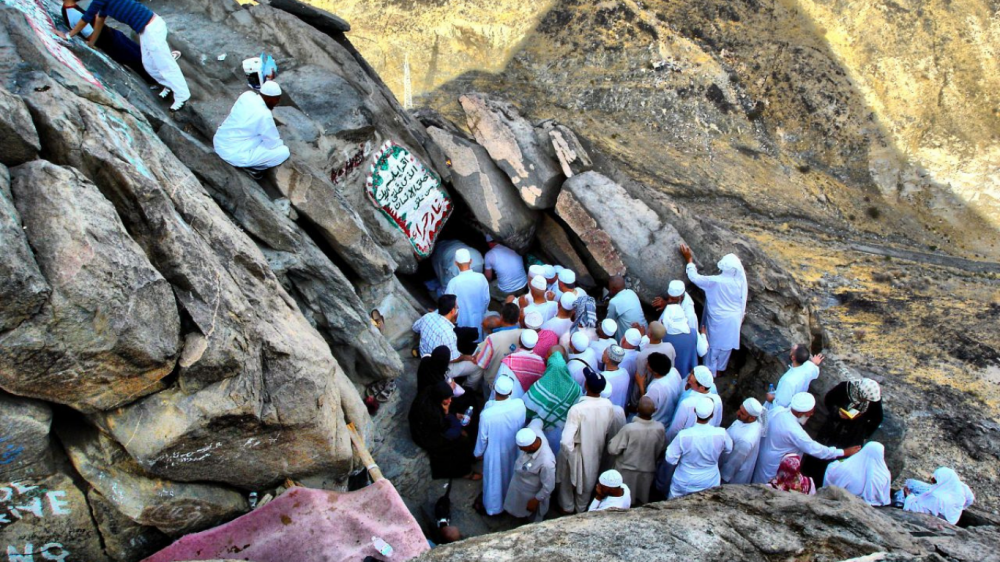
The Prophet’s Message: Tawḥīd, Mercy, and Justice
Tawḥīd — Oneness of Allah ﷻ
His ﷺ call was simple yet revolutionary:Lā ilāha illā Allah—none is worthy of worship but Allah. The recognition of one Creator dismantled the false hierarchy of tribes and wealth, placing all people equally before Him.
Mercy in Practice
Allah ﷻ describes him:
“We have not sent you, [O Muḥammad], except as a mercy to the worlds.”
(Al-Anbiyāʾ 21:107)
He ﷺ forgave enemies, visited the sick, fed the poor, protected the vulnerable, and even taught kindness to animals. The Prophet ﷺ said:
“The Most Merciful shows mercy to those who are merciful. Be merciful to those on earth, and the One above the heavens will show you mercy.
(Tirmidhī 1924)
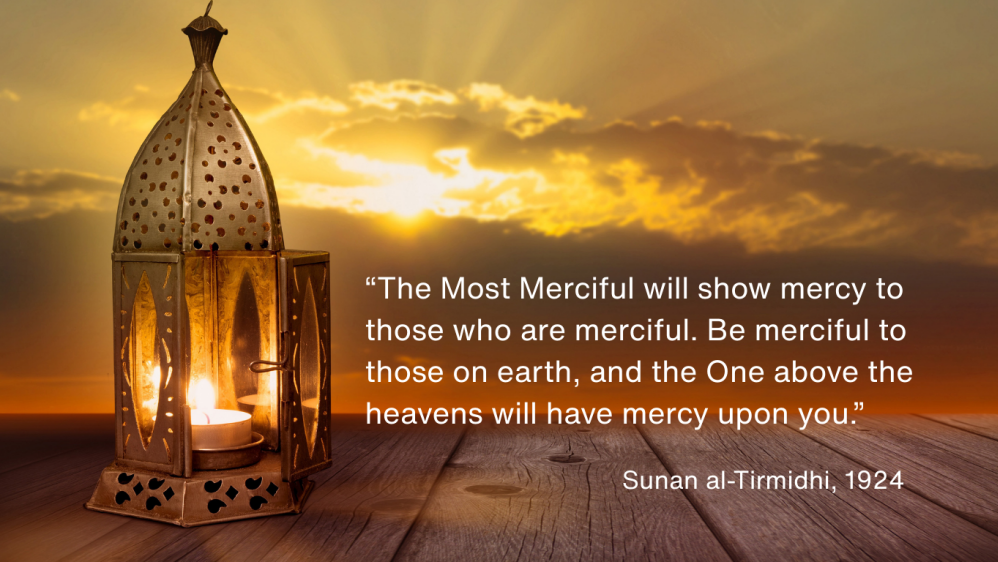
Justice and Social Reform
He ended practices that degraded human dignity, affirmed women’s rights, urged fair trade, condemned oppression, and honoured orphans. ﷺ Worth was measured by taqwā (God-consciousness), not lineage or wealth.
Opposition and Perseverance
The Quraysh elite, threatened by monotheism and social reform, ridiculed the message and persecuted early Muslims. Sumayyah (RA) became Islam’s first martyr; Bilāl (RA), a formerly enslaved African, was tortured yet repeated “Aḥad, Aḥad”—“One, One.” A harsh boycott forced Muslims into deprivation, but they persevered. The Prophet ﷺ consoled his followers with the divine promise:
“So be patient. Indeed, the promise of Allah is truth.”
(Ar-Rūm 30:60)
The Hijrah: Migration to Madīnah
With persecution intensifying, Allah ﷻ permitted migration. Families left their wealth and homes in search of His pleasure.
“[For] the poor emigrants who were expelled from their homes and properties, seeking bounty from Allah and His approval… they are the truthful.”
(Al-Ḥashr 59:8)
The Prophet ﷺ travelled with Abū Bakr (RA). As They hid in the cave of Thawr; he ﷺ reassured his companion:
“Do not grieve; indeed, Allah is with us.”
(At-Tawbah 9:40)
In Madīnah, the Anṣār welcomed the Muhājirūn, establishing the first Islamic society based on faith rather than blood.
Badr: A Turning Point
Two years after the Hijrah, 313 Muslims faced over a thousand Quraysh at Badr. The Prophet ﷺ prayed earnestly; Allah ﷻ granted victory:
“When you asked help of your Lord, and He answered you, ‘I will reinforce you with a thousand angels, following one another.’”
(Al-Anfāl 8:9)
And:
“Allah had already given you victory at Badr while you were few in number.”
(Āl ʿImrān 3:123)
Badr proved that reliance upon Allah ﷻ outweighs material odds and emboldened the believers.
The Treaty of Ḥudaybiyyah
In the sixth year after Hijrah, the Prophet ﷺ set out peacefully for ʿUmrah. Stopped at Ḥudaybiyyah, he ﷺ accepted a truce that seemed unfavourable to many companions. Allah ﷻ revealed:
“Indeed, We have granted you a clear victory.”
(Al-Fatḥ 48:1)
ThThe calm that followed the victory opened doors for daʿwah, leading to more people embracing Islam in two years than in the previous decade—this serves as proof that wise diplomacy can achieve what battle cannot.
The Conquest of Makkah
After Quraysh violated the treaty, the Prophet ﷺ entered Makkah with 10,000 companions—head bowed in humility. He ﷺ declared amnesty: “Go, for you are free.” Idols were removed from the Kaʿbah as he ﷺ recited:
“Truth has come and falsehood has vanished; indeed, falsehood is bound to vanish.”
(Al-Isrāʾ 17:81)
The Qur’an summarises this moment:
“When the victory of Allah has come and the conquest, and you see people entering Allah’s religion in multitudes, then glorify your Lord and seek His forgiveness.”
(An-Naṣr 110:1–3)
One of the most enduring lessons of his ﷺ leadership was mercy during the height of power.
Leadership in Madīnah & the Five Pillars
As As a statesman and judge, the Prophet ﷺ draughted the Constitution of Madīnah, which secured cooperation among Muslims, Jews, and allied tribes while clearly articulating their rights and responsibilities in a plural city-state.
He ﷺ also established the Five Pillars as the framework of worship and society:
- Shahādah (Faith): To testify that none is worthy of worship but Allah and that Muḥammad is His Messenger ﷺ.
- Ṣalāh (Prayer): Five daily prayers anchoring the believer’s day.
- Zakāh (Almsgiving): Purifying wealth and uplifting the poor.
- Ṣawm (Fasting in Ramaḍān): Cultivating restraint and empathy.
- Ḥajj (Pilgrimage): Uniting believers in worship at the Sacred House.
“Islam is built upon five…”
(Bukhārī 8; Muslim 16)
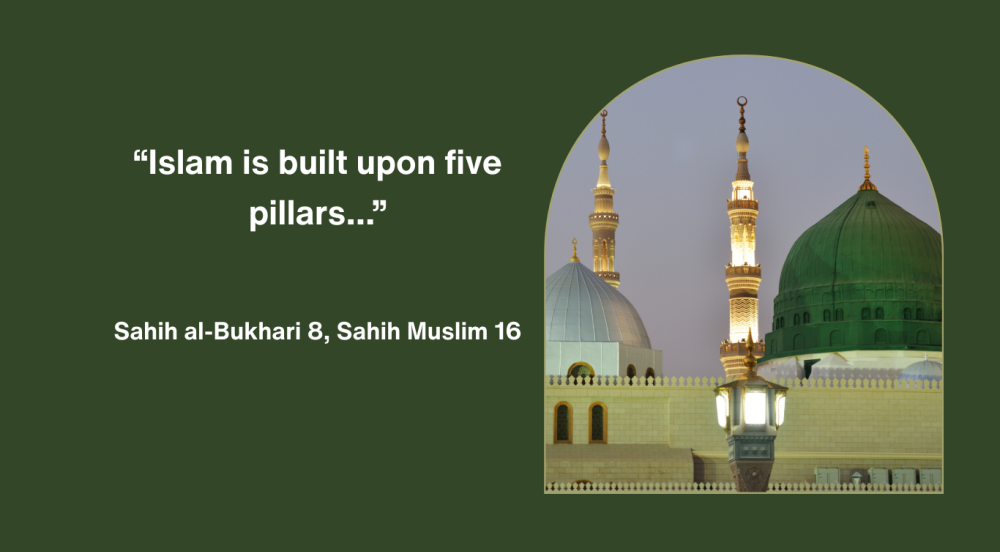
His Personal Life: Humility, Kindness, Family
Despite his immense responsibilities, he ﷺ lived simply by mending his clothes, spending time with the poor, and eating modestly. with the poor, and eating modestly. He ﷺ said:
“The best of you is the best to his wife/family, and I am the best among you to my wives.”
Sunan Tirmidhi, Hadith: 3895, Sunan Ibn Majah, Hadith: 1977
He ﷺ showed deep affection for Fāṭimah (RA) and love for Ḥasan and Ḥusayn (RA) by carrying them and playing with them. A companion said, “I never saw anyone more compassionate towards children than the Messenger of Allah.” (Muslim 2316) His private kindness matched his public greatness.
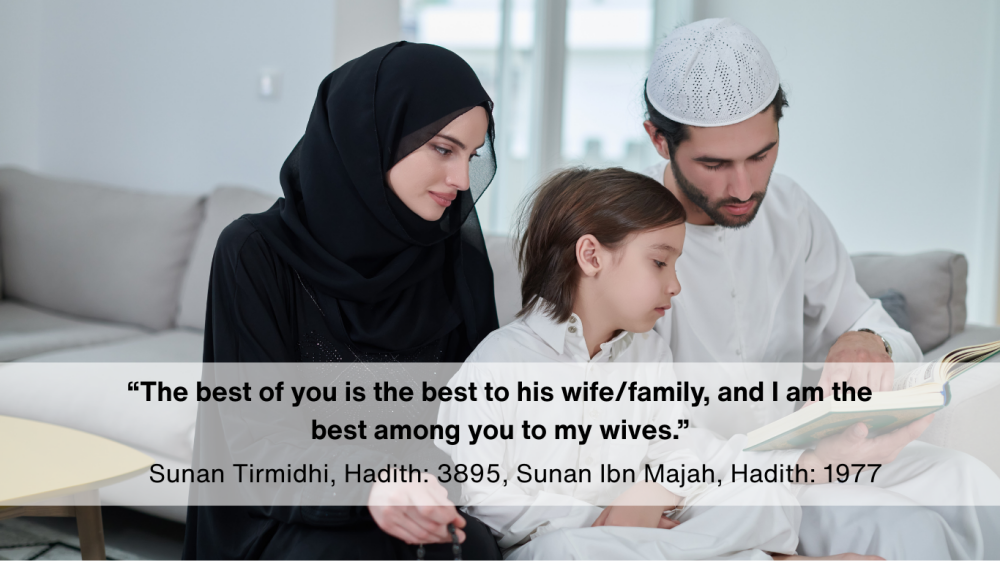
The Farewell Sermon & Lasting Message
In his final Ḥajj (10 AH), he ﷺ delivered the Farewell Sermon, encapsulating Islam’s ethics: the sanctity of life, property, and honour; the abolition of interest (ribā); fairness in trade; and the rights of women. He ﷺ declared that no Arab is superior to a non-Arab, nor a white over a black—except by piety and beneficial action. Shortly after, he ﷺ passed away at 63. Abū Bakr (RA) reminded the community, “Whoever worshipped Muḥammad—Muḥammad has died. Whoever worships Allah—Allah is Living and never dies.”
Relevance Today: Walking in His ﷺ Footsteps
His ﷺ Sunnah offers a roadmap for modern life:
- Leadership as service: Lead with justice, humility, and accountability.
- Social equity: Stand against racism, classism, and exploitation.
- Compassion in action: Care for your neighbours, protect vulnerable individuals, and readily forgive others.
- Balance: harmonise worship with family, work, and the community.
- Love of knowledge: He ﷺ said, “Seeking knowledge is obligatory upon every Muslim.” (Ibn Mājah 224)
Living his ﷺ example means embodying faith with excellence—iḥsān—in every role we play.
Conclusion
From the darkness of Jāhiliyyah, the Prophet Muḥammad ﷺ brought light; from division, unity; from oppression, justice. He ﷺ did not only recite the Qur’ān—he lived it. For all who seek guidance, his ﷺ life remains the clearest path to Allah ﷻ:
“Indeed, in the Messenger of Allah you have an excellent example for whoever hopes in Allah and the Last Day and remembers Allah often.”
(Al-Aḥzāb 33:21)
To love him ﷺ is to follow him—in devotion, mercy, and truth.
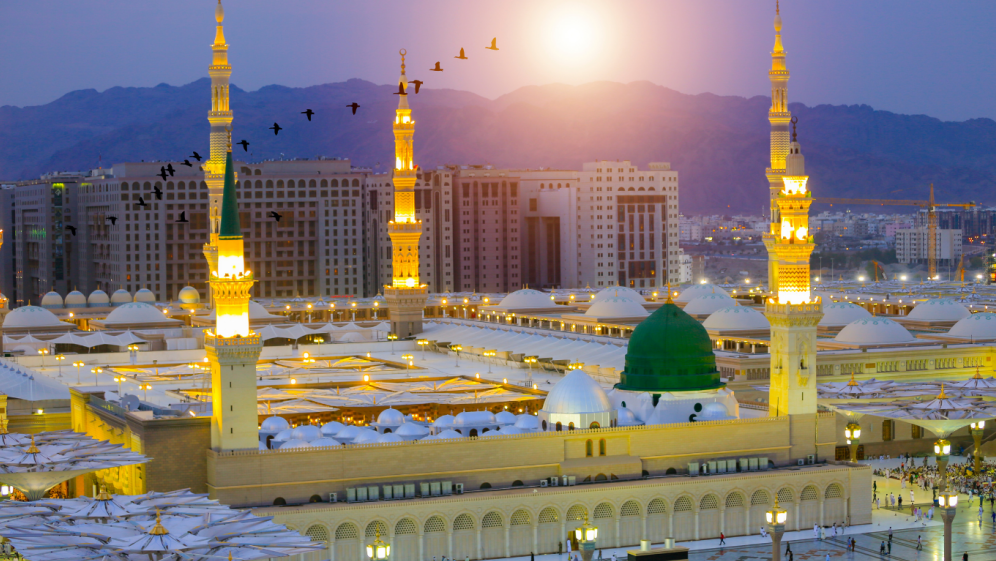
References
- The Qur’ān: 96:1–5; 81:8–9; 93:6; 30:60; 59:8; 9:40; 8:9; 3:123; 48:1; 17:81; 110:1–3; 21:107; 33:21.
- The references cited include Ṣaḥīḥ al-Bukhārī (8), Ṣaḥīḥ Muslim (16, 2316), Jāmiʿ al-Tirmidhī (1924, 3895), and Sunan Ibn Mājah (224).
- Sīrah sources: Ibn Hishām, Sīrat Rasūl Allāh; Martin Lings, Muḥammad: His Life Based on the Earliest Sources.

